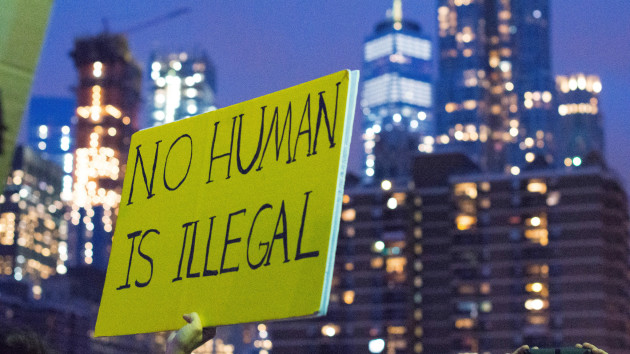The Lilith Blog 1 of 2
September 6, 2017 by Olga Lara
A Stranger in a Strange Land

Photo Credit: Harrie van Veen
I am a Jew. I am a Latina. I am a mother. These are the most salient components of my identity. The order of importance of these identities changes, sometimes daily or hourly, depending on the circumstance. But, yesterday, September 5, I felt all those parts of my identity, simultaneously and acutely.
I don’t usually post on live Facebook video feeds. However, yesterday I received a text from a young woman I have known for 10 years. She is a Dreamer (an undocumented immigrant who was brought to the United States as a child) and currently studying at a university. She is like a daughter to me. I have known her since she was in elementary school. I have followed her academic career and have served as a friend, mentor and advisor.
She texted to let me know that she was participating in a pro-DACA demonstration in front of the White House. I went to social media and watched a live feed and posted the following: “Stand Up, Fight Back!” which I knew she would see. Unfortunately, many others also saw my post. I began to receive vitriolic responses from random people telling me to “Go back to where you came from.” “Your kind doesn’t pay taxes.” And “You illegals.” These are the only invectives suitable for print.
I was flabbergasted. These people don’t know me or know my narrative. Yet they feel emboldened to say such things to a complete stranger. A Stranger.
The term “stranger” has great significance in Jewish texts. It is referenced at least 36 times in Torah. “You shall not wrong a stranger or oppress them, for you were strangers in the land of Egypt.” Exodus 22:21.
The emphasis placed upon this directive in Judaism was the most compelling reason I chose to become Jewish. As a Mexican growing up in Texas, I often felt like a stranger in my own country. As a result of my dark skin and Spanish language, I had a keen awareness of my “different-ness.” I was a stranger in a strange land.
When I began to read Jewish texts, I found a home and a language that elegantly expressed my deepest yearnings that 1) we must remember that we were–and many of us are–strangers in a strange land; and that 2) we must strive not only to understand the stranger, but more importantly to show compassion toward this person.
I would argue that we must look for the antonyms of “stranger.” We must become “acquaintances.” Or perhaps even “friends.”
We must begin the dialogue of understanding one another’s stories and journeys. Until then, the stranger will continue to be the stranger, the unnamed other whose humanity is lost.
As we as a nation proceed in the next few months to discuss public policy with regard to the immigration status of our Dreamers, let us not lose sight of the fact that we have a moral obligation to the stranger, for we were once strangers in a strange land.
The views and opinions expressed in this article are the author’s own and do not necessarily reflect those of Lilith Magazine.
 Please wait...
Please wait...